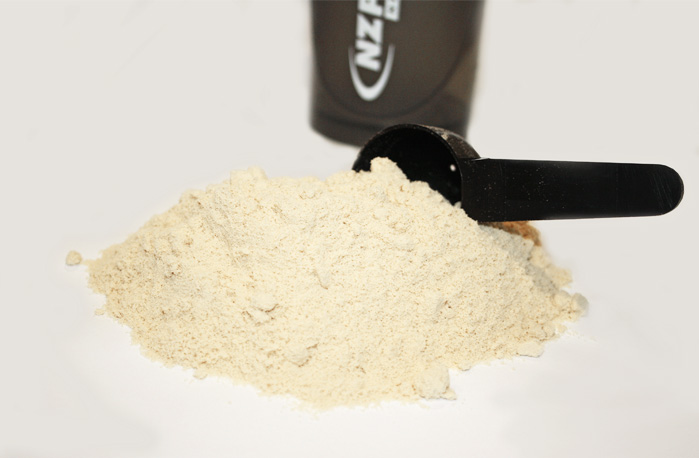
Protein Before Bed to Gain Muscle
So you've been doing everything right - working out, eating your greens, hydrating as you should and supplementing with all the goods to bulk up.
But you are looking for that extra bit that will make a difference? What about timing your protein intake?
A lot of debates focus on whether we should take protein right before or after a workout. Yet, few people talk about when to take protein outside of the gym.
Studies show that protein is better absorbed if ingested steadily throughout the day, rather than in one go. Therefore, it makes sense to include it outside of your workout as well.
Sleep and Protein
Night-time is when our body does its housecleaning work. Rest, repair, healing and growth all occur during sleep.
Protein is made up from amino acids which are the building blocks of every cell in our body. Amino acids have many functions in the body.
One of its most known functions is to repair and grow muscle in response to exercise and strength training. This is what we call muscle protein synthesis.
If amino acids are not readily available when the body is attempting to repair and grow muscle tissues, the body will breakdown some of its own protein to release amino acids.
With 40% of body proteins being in the muscles, this is counterproductive and leads to muscle wasting rather than muscle building.
Supporting the body right before sleep with the tools to nourish and create dense, healthy muscles is therefore very important for anyone wanting to bulk up.
For this reason, the International Society of Sports Nutrition favours protein intake before sleep for athletes and for anyone working out consistently.
But athletes and active people are not the only ones who can benefit from having protein before bed.
Other studies show the benefit of pre-sleep protein intake on an elderly male population. Having a high protein intake before bed seems to ensure adequate muscle mass and prevent muscle loss often associated with age.
It thus appears that protein before bed can favourably impact muscle concentration, irrespective of physical activity.
What Kind of Protein to Choose Before Bed?
The main requirement when taking a protein before bed is that it needs to be intermediate to slow digesting. This ensures a consistent release of amino acids throughout the night.
A fast digesting protein, such as whey, is absorbed by the body in one to two hours. This type of protein is better ingested right before or after a workout.
Intermediate digesting proteins are usually absorbed in three to four hours. Plant-based proteins, such as pea or rice proteins, fall into this category.
Slow digesting proteins take more than four hours to be absorbed. Casein seems to be the winner in this category.
Casein
Casein is one of the two proteins contained in milk (the other one being whey).
Casein is a complete protein, meaning it contains all the amino acids our body requires for health. With a high protein to fat and carbohydrates ratio, casein is also a slow-digesting protein.
For instance, our NZProtein Micellar Casein – unflavoured, contains 25.3 g of protein per serving, versus 0.5 g of fat and 1.6 g of carbohydrate.
Casein has been shown to provide amino acids to the body for as long as seven hours.
This consistent release of amino acids is key in ensuring muscle building during the night (or during periods of fasting).
Casein is the specific protein the Society of Sports Nutrition recommends before bed as a mean to ensure muscle protein synthesis.
Plant-based Proteins
Plant-based proteins typically fall into the intermediate-digesting category.
While not as slow digesting as casein, they are still a great option before bed, especially for anyone avoiding dairy or animal products.
Plant-based proteins sometimes get a bad reputation for being incomplete proteins and therefore unable to promote growth.
At NZProtein, we make sure that all our plant-based proteins are complete and rich in leucine. Leucine is the main amino acid involved in muscle growth.
In fact, our NZProtein Rice protein contains a solid 2630 mg of leucine per serving. To compare, casein protein contains 2430 mg of leucine per serving.
Studies have shown rice protein sits in the middle, between whey (fast) and casein (slow) when it comes to night absorption rate.
Our Rice protein is easy to digest and gentle on the stomach. This makes it a good option before bed, as the body does not like to work hard on digestion while sleeping and regenerating.
If you are worried about drinking protein powder before bed (hello 3 am bathroom break!), try ramping up your protein intake in your last meal.
A good option is to use some of our protein foods, such as our black bean spaghetti or our protein hummus, in your last meal.
Or, if you enjoy cooking and baking, try incorporating our protein powders in your food.
Our NZProtein Pea protein is probably the best option for this. Pea protein mixes easily and bakes well, with not dry taste to it.
Have a look at our recipe section for a pre-bed protein snack that will slowly release its goodness through the night.
In Summary
Studies have shown timing your protein intake according to your health and workout goal is a good idea.
If you want to make sure your body is repairing and creating new muscle tissues during the night, it is best to give it the tools to do just that.
This applies not only to athletes and active people, but also to anyone experiencing muscle wasting, such as the elderly.
Protein before bed will provide muscles with the amino acids needed to stay healthy and to further bulk up, if this is your aim.
All proteins are not created equal though. Studies focus on slow or intermediate digesting proteins, as they consistently release amino acids during the night.
